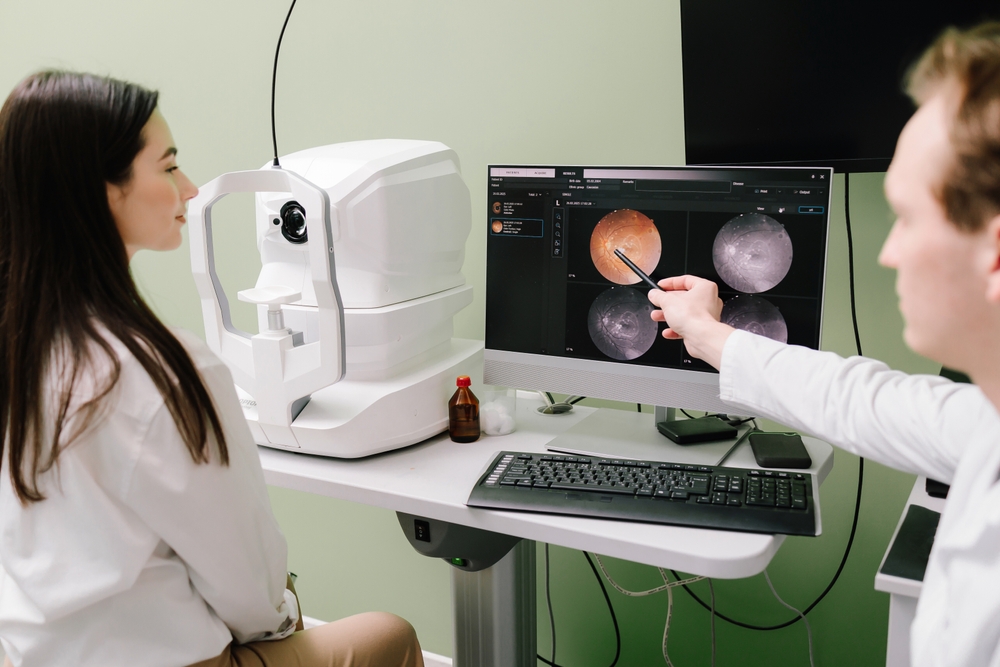
Macular degeneration is one of the leading causes of vision loss in older adults, and while age is the biggest known risk factor, genetics also play a significant part. Understanding the hereditary link behind macular degeneration can help you take proactive steps to protect your sight. For patients seeking guidance from an eye doctor in Santa Fe, TX, knowing your genetic risk is an important first step toward safeguarding long-term vision.
The Genetic Connection to Macular Degeneration
Age-related macular degeneration (AMD) occurs when the macula begins to deteriorate. Research has shown that certain inherited gene variations can significantly increase your risk of developing AMD. In fact, individuals with a parent or sibling diagnosed with AMD are more likely to develop the condition themselves.
Some of the most studied genes related to AMD include:
• CFH (Complement Factor H): Variations in this gene can cause increased inflammation inside the eye, contributing to the development of AMD.
• ARMS2/HTRA1: These gene variations have been linked to accelerated macular damage and a higher chance of progressing to advanced forms of the disease.
• C3: Another gene tied to the eye’s inflammatory response, which can influence AMD development.
While genetics don’t guarantee that someone will develop macular degeneration, they do increase susceptibility - making early detection essential.
Family History Matters
If macular degeneration runs in your family, you may have a higher lifetime risk. Even lifestyle factors - like smoking, excessive sunlight exposure, and poor nutrition - can interact with your genetic predisposition to elevate risk further. This is why comprehensive screenings and a close partnership with your eye doctor are crucial. Speaking with our eye doctor in Santa Fe, TX can help you understand your personal risk level and develop a plan for protecting your eyesight.
The Role of Routine Medical Eye Exams
Even if you do not currently have symptoms, routine medical eye exams in Santa Fe are one of the most important tools for early detection. AMD can develop slowly and silently, and many people do not notice changes in their vision until the condition has progressed.
During a medical eye exam, your doctor can:
• Examine the retina for early signs of macular changes
• Identify drusen deposits (one of the earliest markers of AMD)
• Monitor progression over time
• Recommend lifestyle or nutritional changes to support retinal health
• Provide early intervention to slow the condition if needed
Early detection offers the best chance of preserving vision long-term, especially for individuals with a genetic predisposition.
Can You Reduce Your Risk If AMD Runs in Your Family?
While genetics cannot be changed, certain choices can help reduce or slow the progression of macular degeneration:
• Eating leafy greens, colorful fruits, and foods rich in omega-3 fatty acids
• Wearing UV-protective sunglasses
• Maintaining a healthy weight
• Avoiding smoking
• Managing blood pressure
• Taking AREDS2 supplements if recommended by your doctor
These healthy habits, paired with regular medical eye care, can make a meaningful difference.
Safeguard Your Vision with Expert Care
Genetics play a crucial role in determining your risk for macular degeneration, but early detection and proactive care can help protect your sight. If you have a family history of AMD, routine medical eye exams are essential.
Schedule your medical eye exam at Texas State Optical to stay ahead of macular degeneration and support lifelong eye health. Visit our office in Santa Fe, Texas, or call (409) 231-6800 to book an appointment today.










